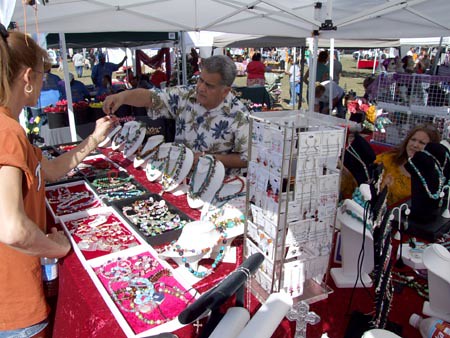On September 27, 2020 I was asked to perform "Lord I Need You" at Kyle United Methodist Church in Kyle, Texas. I was accompanied by Jenny Hollub Sandoval.
It begins at the 10:44 mark.
Find out more about Kyle United Methodist Church at kyleumc.com
Welcome to Claes Place. Sean Claes is a Content Manager and Social Media expert who has worked as a Journalist, Photographer, Event Planner, Consultant, Marketer and Copywriter. He's got over 20 years of experience advising small business and musicians about their marketing and social media.
These are his stories, notes, works and advice.
Contact Sean Claes at seanclaesATseanclaesDOTcom.
On September 27, 2020 I was asked to perform "Lord I Need You" at Kyle United Methodist Church in Kyle, Texas. I was accompanied by Jenny Hollub Sandoval.
It begins at the 10:44 mark.
 |
About The Author:Sean Claes has worked with Mom and Pop shops, International Corporations and the Music Industry on their branding, marketing, events and communications for more than 15 years. This article is just a sample of the observations he's made over the course of that time. For more information or to see how he might be able to help grow your business, contact him at seanclaesATseanclaesDOTcom. For more small business marketing advice, please visit - http://seanclaesdotcom.blogspot.com/p/small-business-marketing.html
 |
| My daughter & her friend... the young entrepreneurs. |
About The Author: Sean Claes has worked with Mom and Pop shops, International Corporations and the Music Industry on their branding, marketing, events and communications for more than 15 years. This article is just a sample of the observations he's made over the course of that time. For more information or to see how he might be able to help grow your business, contact him at seanclaesATseanclaesDOTcom.
Read more Small Business Advice via his Small Business Marketing page - link.
 |
| The Owners of Cross Plants and Produce pose with Santa surrounded by their annual Christmas Tree Forest. They've got personality! |
 |
| Volunteering to hand out water at Mile Marker 1at a 5k. The (former) owners of Tiaras (L), a Realtor and an owner of a local computer solution business. Participating. |
About The Author:Sean Claes has worked with Mom and Pop shops, International Corporations and the Music Industry on their branding, marketing, events and communications for more than 15 years. This article is just a sample of the observations he's made over the course of that time. For more information or to see how he might be able to help grow your business, contact him at seanclaesATseanclaesDOTcom.
Read more Small Business Advice via his Small Business Marketing page - link.
 |
| Jewelry booth at the Kyle Fair & Music Festival (2007) |
About The Author:Sean Claes has worked with Mom and Pop shops, International Corporations and the Music Industry on their branding, marketing, events and communications for more than 15 years. This article is just a sample of the observations he's made over the course of that time. For more information or to see how he might be able to help grow your business, contact him at seanclaesATseanclaesDOTcom.
Read more Small Business Advice via his Small Business Marketing page - link.
About The Author:
Sean Claes has worked with Mom and Pop shops, International Corporations and the Music Industry on their branding, marketing, events and communications for more than 15 years. This article is just a sample of the observations he's made over the course of that time. For more information or to see how he might be able to help grow your business, contact him at seanclaesATseanclaesDOTcom.
More advice can be found in Claes' 52 Week of DIY Music Advice - a series he wrote between 2010-2012 - link
 |
| A collage of Kyle, Texas - home of many small businesses. |
Thanks for taking the time to read this. There is much, much more to consider than what I've pointed out above, but this is a good starting point. You started your own business with the idea to succeed, right? Well, it takes a great product that has some demand lot of work to make that happen. I want you to succeed. Hopefully you can read this and see a few things you might do differently.
About The Author:
Sean Claes has worked with Mom and Pop shops, International Corporations and the Music Industry on their branding, marketing, events and communications for more than 15 years. This article is just a sample of the observations he's made over the course of that time. For more information or to see how he might be able to help grow your business, contact him at seanclaesATseanclaesDOTcom.
More advice can be found in Claes' 52 Week of DIY Music Advice - a series he wrote between 2010-2012 - link